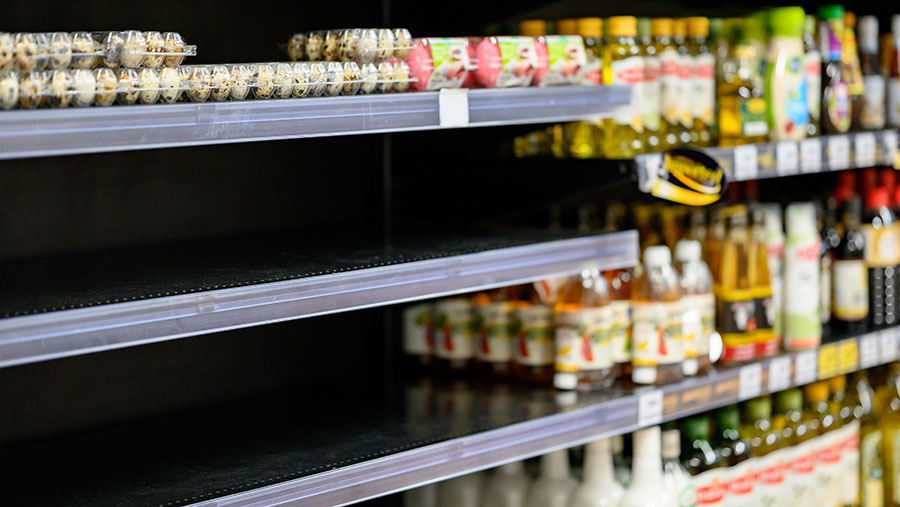Editor’s view: The era of underselling food is over
 © Zephyr_p/Adobe Stock
© Zephyr_p/Adobe Stock It is always interesting to see the moment stories that have dominated the farming news agenda for months break into the wider public’s consciousness.
So it was this week with the troubles blighting egg producers when the egg shortages they had been forecasting since early this year finally materialised.
Farmers have watched in sadness, but not surprise, as prices rose for the consumer without much of the revenue trickling back through the supply chain to the producer, and many have decided to shut down production.
See also: Editor’s view: Modern politicians need a dose of Deben
And while avian flu has been an additional hammer blow, it is lamentable and wrong that it is now being used as a fig leaf for retailers to explain away the shortages.
It has been a source of confusion to me this year that the price of milk has been able to increase 12% on the year as processors responded to the genuine threat of scarcity if this did not happen, but other sectors have not followed suit.
Other storms are also brewing, such as in the potato sector, where even large-scale producers are now speaking out about not being able to reach agreement on price for next season.
A full-on public relations disaster appears to be looming if they cannot act shortly to give producers confidence.
So why have supermarkets acted in such as short-sighted way?
At this point, you are probably expecting the usual lecture from the Farmers Weekly editor about the enduring need for long-term relationships within the industry to maintain supply through bouts of volatility.
I could also lambast and lament the bitter price war going on between the big chains, which incentivises sharp practice.
All these comments and more are true, but there is one further key point: It takes two parties to enter into an agreement.
Everyone who is now in trouble did at some point consent to supply a retailer or a firm with links to a retailer. And there is no one left in the country who doesn’t know the reputation they have.
Must farmers also take a share of the blame for being short-sighted? Did friends warn them about rushing into this relationship, yet they thought to themselves: “This time it’ll be different”?
Last month, I wrote in this column that, despite everything, farming is one of the best jobs in the world, and I stand by that.
However, we should be alive to the reality that other segments of the supply chain are not blind to the fact that many are desperate to farm – almost at any cost.
It is to be hoped that the era of underselling ourselves is nearly over. Dwindling subsidies and higher cost inputs – if they are available at all – will help with that.
So will rising interest rates, as anyone looking to borrow to invest in a new enterprise will need a more ironclad commitment from a buyer before the bank will be interested in funding it.
And so too will competition for land from those looking to purchase carbon and biodiversity credits.
The Soil Association’s nascent Wilder Carbon scheme, which will reportedly pay about £75/t of carbon sequestered (providing a biodiversity uplift is also guaranteed) could be among those that really make landowners question whether food production is the best way to pay the bills.
And if that means the remaining food producers are left in a better bargaining position then we can hardly complain too much if the land next door starts to look scruffier.

